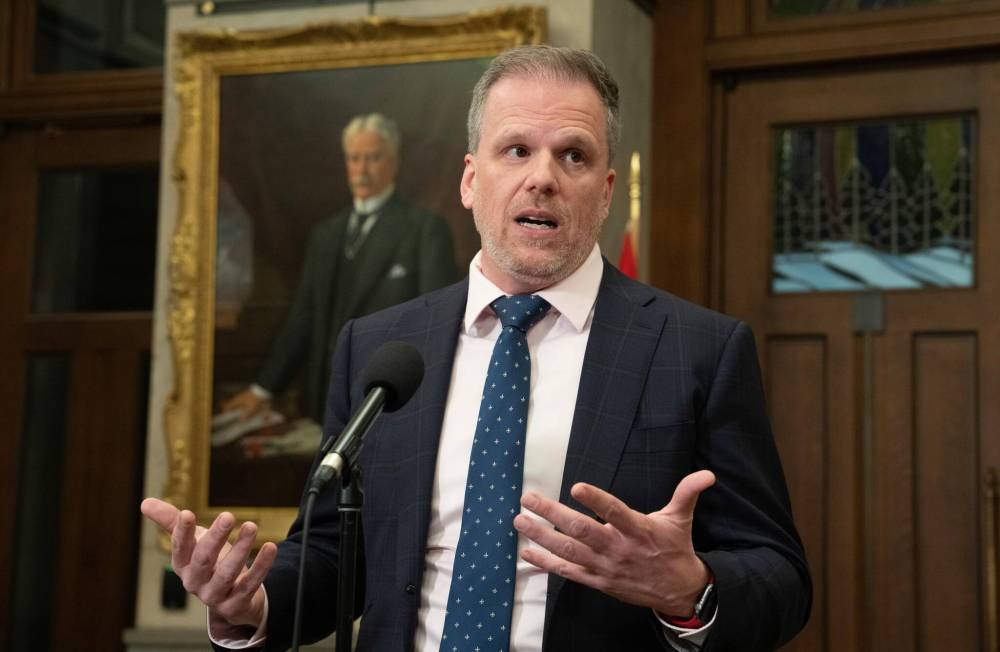Pharmacare pledge too big to flop on
Advertisement
Read this article for free:
or
Already have an account? Log in here »
To continue reading, please subscribe:
Monthly Digital Subscription
$0 for the first 4 weeks*
- Enjoy unlimited reading on winnipegfreepress.com
- Read the E-Edition, our digital replica newspaper
- Access News Break, our award-winning app
- Play interactive puzzles
*No charge for 4 weeks then price increases to the regular rate of $19.95 plus GST every four weeks. Offer available to new and qualified returning subscribers only. Cancel any time.
Monthly Digital Subscription
$4.99/week*
- Enjoy unlimited reading on winnipegfreepress.com
- Read the E-Edition, our digital replica newspaper
- Access News Break, our award-winning app
- Play interactive puzzles
*Billed as $19.95 plus GST every four weeks. Cancel any time.
To continue reading, please subscribe:
Add Free Press access to your Brandon Sun subscription for only an additional
$1 for the first 4 weeks*
*Your next subscription payment will increase by $1.00 and you will be charged $16.99 plus GST for four weeks. After four weeks, your payment will increase to $23.99 plus GST every four weeks.
Read unlimited articles for free today:
or
Already have an account? Log in here »
Hey there, time traveller!
This article was published 07/06/2024 (581 days ago), so information in it may no longer be current.
Parliament is making a heck of a promise to Canadians, and it will cost the current government dearly if it can’t keep it.
Earlier this week, the federal Liberals’ pharmacare bill passed third reading and made its way to the Senate. The bill is the first foothold on the steep climb to fully fledged national pharmacare for Canadians, with this early iteration covering some contraceptives and diabetes medications.
Assuming this bill makes it through the Senate, the idea is that it will be only the first phase, with the whole project ending with every Canadians’ pharmaceutical costs covered under the national program.

THE CANADIAN PRESS/Adrian Wyld
Federal Health Minister Mark Holland
It’s a swell idea. While many Canadians are quick to tout our “free health care” (especially in comparison to the for-profit American system next door), the fact is Canadians are often on the hook for routine medical expenses incurred outside the hospital and clinic, be it prescriptions, equipment or even dental care (the maintenance of which also serves our good health). And so Canadians work within both a single-payer system funded by tax dollars and a network of various private insurers, often through workplaces.
It would certainly make things easier if the whole works could fall under Health Canada’s umbrella. But that’s also a tall order, and therein lies the danger for the leaders dangling it before us.
Value for money spent is, of course, a major concern. Even this first, toes-in-the-water outing is expected to cost $1.5 billion over five years, according to Health Minister Mark Holland. A fully fledged program, per earlier reports, would cost Ottawa about $40 billion per year. That will necessarily mean an increase in taxes for at least some Canadians.
Unlike our neighbours to the south, proponents of universal health-care cannot simply gesture to outrageously bloated military spending as a source of revenue for greater health care — Canada’s Armed Forces are pretty anemic as it is. It’s imperative, then, that Ottawa move toward a full-pharmacare model smoothly and effectively; while no one likes the idea of paying more into the system, the medicine (ahem) will go down more smoothly if the system functions as intended out of the gate.
That brings us to the second problem, which is one of logistics. Funding pharmacare is all well and good, but making sure it works is no small task. It will take a significant amount of new staffing and infrastructure to funnel the country’s pharmaceutical needs through the single-payer system.
Unfortunately, we have already seen some bad signs on that front; Ottawa’s early first steps into national dental coverage have left some patients frustrated as they discover neither their clinics nor the federal system are ready to take their appointments as promised. Ottawa has now had to go to work trying to simplify its system.
It is, frankly, too big a pledge to be patching up after the fact. National pharmacare — or dental care, for that matter — could be a crowning achievement for the federal Liberal-NDP alliance, but only if they pull it off.
Aside from the obvious electoral consequences of botching it, the fact is this new system, even at this early stage, will take central importance in the lives of some Canadians who need it to work in order to obtain crucial drugs without administrative headaches or inconvenient (however temporary) financial burdens.
So, a message to the federal government as it moves forward on this project; be prepared, and get it right.
It’s going to cost everyone a great deal if you aren’t, and you don’t.





